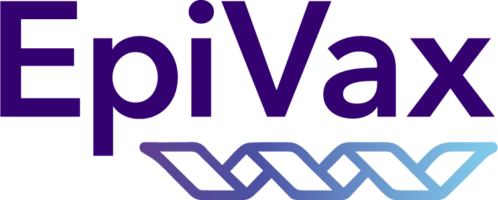
PROVIDENCE — EpiVax Inc. has received a $324,980 Small Business Innovation Research grant to continue development of a web-based test for people at risk of life-threatening immune responses to enzyme replacement treatments for Pompe disease, coinciding with the company’s 20th anniversary.
Pompe disease is an inherited metabolic disorder caused by the deficiency of the acid alpha-glucosidase enzyme. Without the enzyme, glycogen, a complex sugar, builds up in the patient’s cells. The buildup of glycogen impairs organ and tissue function, according to the National Institute of Health.
The accumulation of glycogen in Pompe disease patients weakens their muscles and organs, causing death in some infants before they’re 1 year old, and in early childhood. Adult-onset Pompe disease also causes muscle weakness and early death.
The disease is treated using enzyme replacement therapy, but many patients develop anti-therapeutic antibodies as a result, hampering the life-saving treatment.
“It’s a heartbreaking situation,” said EpiVax founder and CEO Dr. Anne S. De Groot.
Children most likely to develop anti-therapeutic antibodies are given immune tolerance induction to prevent the reaction, De Groot said, but predicting which children need it is difficult.
One way to determine who will develop the immune reaction is by looking for cross-reactive immunological material (or CRIM), according to the NIH.
All CRIM-negative babies would develop antibodies to the treatment, so they are given immune tolerance induction, De Groot said. Being CRIM-positive lowers your risk, and only some of those babies develop antibodies to the treatment, so it’s difficult to tell which CRIM positive patients will have a negative reaction to the treatment, she said.
“We surmised that our tools (developed over the past 20 years) could be used to predict this, based on the ‘residual gene expression’ and the baby’s HLA (genes that determine immune response). Since we all have individual HLA genes, which are passed on to us by our parents, each baby will have a different immune response to the enzyme replacement therapy. So, if you have a tool that can determine which combination of residual gene expression and which HLA the individual baby has, you can predict ATA with our tools,” De Groot said.
De Groot said people can use the diagnosic tool, which she described as a web app, to input a person’s Pompe disease gene sequence and patient HLA to find out their risk for developing an immune response to enzyme replacement.
The grant funding will be applied roughly 50-50 between personnel and validating experiments, De Groot said.
De Groot will direct the development and validation of the Personalized Immunogenicity Assessment tool. She and her team will collaborate on the project with Dr. Priya Kishnani, Zoheb Kazi and other colleagues at the Alice and YT Chen Pediatric Genetics and Genomics Research Center (Department of Pediatrics, Duke University).
De Groot said the approach can also be applied to all enzyme replacement therapies, all “glycogen storage disorders,” and some diseases now being targeted by gene therapy, such as hemophilia.
“Since in all cases for those gene-deficiency diseases, the gene will be foreign, and immune response can be expected,” De Groot said.
“A personalized prediction tool could potentially enable clinicians to more effectively manage enzyme replacement therapy for patients with Pompe disease, leading to improved quality of life and efficacy for this otherwise lethal disorder,” said Kishnani, an expert on Pompe disease.
EpiVax CIO/COO and partner, Bill Martin, said, “What a present to receive on our 20th birthday! We are excited to develop our new tool, PIMA, with the hope of improving the lives of those with Pompe disease.”
Rob Borkowski is a PBN staff writer.











